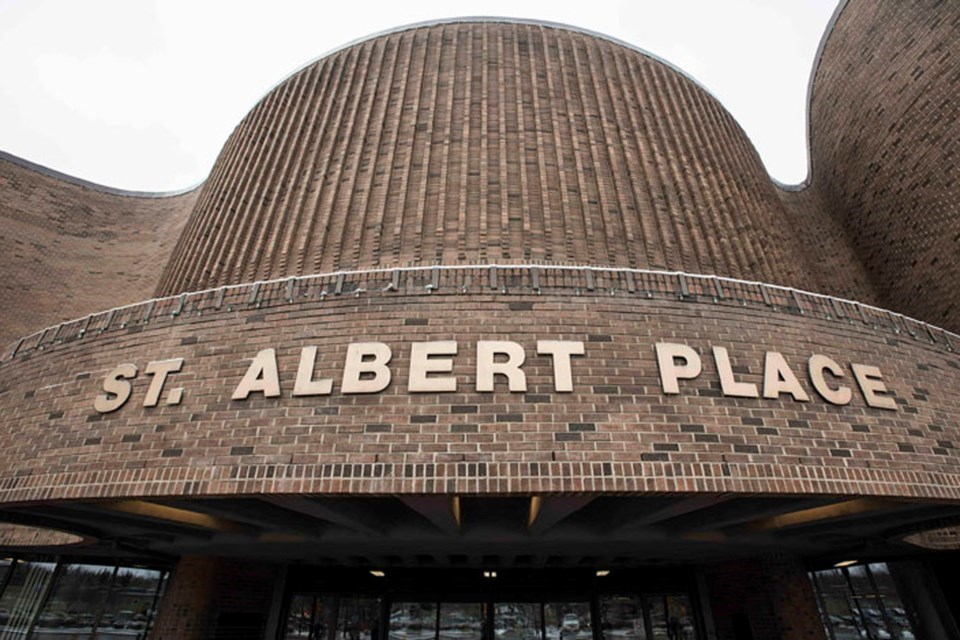Residents can expect construction on the north end of St. Albert Trail to continue for at least another two years after council approved a $20.5 million borrowing bylaw for the next phase of roadwork this week.
On Tuesday, St. Albert city council approved the funding for the third and final phase of construction on the northern part of St. Albert Trail, bringing the city's long-term debt total to nearly $130 million.
Phase 3 of the project covers the section between the Everett Drive North intersection and the Neil Ross Road intersection. The work includes an additional lane travelling in both directions, the realignment of southbound lanes to match the work completed during the first two phases, the installation of a parallel pedestrian trail, necessary utility infrastructure, and traffic signals.
Coun. Ken MacKay said he knows residents have grown frustrated with seemingly non-stop construction on St. Albert Trail over the past couple of years, but thinks finishing the road improvements now is in the city's best interest for cost-savings and continued growth in the north.
“People are getting frustrated with all the construction, particularly in the north end," he said. "But at the same time, I think we have to continue forward on construction because ... I think this is something that as our growth continues to go north, we have to continue to actually get the infrastructure in place that's important to new growth.”
“Right now we've got to support the construction because that's where our growth is and if we delay, I would be afraid of what the cost would be.”
The actual budget for this phase of construction is about $16.2 million, with the remaining $4.3 million covered under the borrowing bylaw being contingency funding that cannot be used without further council approval.
The debt will be paid back over a 20-year term, and the city's overall long-term debt now totals about $129.4 million. That is slightly more than half of the city's policy-determined debt limit, and about 43 per cent of the city's roughly $300 million debt limit as dictated under the Municipal Government Act.
The city has already taken on $26 million in long-term debt for the first two phases of work; however, the new debt will be the first to have a direct impact on property taxes, as just 65 per cent of the overall cost will be recoverable through off-site levies, while the remaining 35 per cent is the city's direct responsibility.
Off-site levies are a method of funding infrastructure development when a municipality can't pay the full cost.
Locally, the off-site levy program involves a development company, or the city itself, front-ending construction costs with a guarantee other developers who benefit from the infrastructure development will pay city-determined levies in the future.
With off-site levies accounting for 65 per cent of the project's $16.2 million budget, the city is only responsible for paying back $5.67 million.
The borrowing bylaw passed second and third reading on unanimous consent on Sept. 19, meaning council didn't debate the spending further.
In July, Coun. Mike Killick said he planned to vote against the debt at second and third reading, arguing the city could postpone this phase of work for a number of years and that it didn't match the city's priorities moving forward.
In an interview on Monday, Killick said while he still generally opposed moving forward with the project, he felt voting against it at second and third reading wasn't conducive to making any changes.
“I was planning on voting against it (but) in light of the fact that the money is 65 per cent recoverable through off-site levies, and is only a 35 per cent impact to taxes (I've decided not to),” Killick said.
“A big driver is that it's now clearly stated that it's 65 per cent developer off-site leviable, so it kind of lessens the financial impact.”
Coun. Sheena Hughes said she is confident the project won't go over budget, as planners built an estimate on detailed design work.
“The cost for St. Albert Trail has gone up substantially, it has almost tripled in cost, and the one thing we can assure taxpayers is that the designs were done for Phase 3 in advance, so the numbers should not escalate dramatically,” Hughes said.
City spokesperson Pamela Osborne said in an email construction is expected to start next spring, and will be complete by November of 2025.




